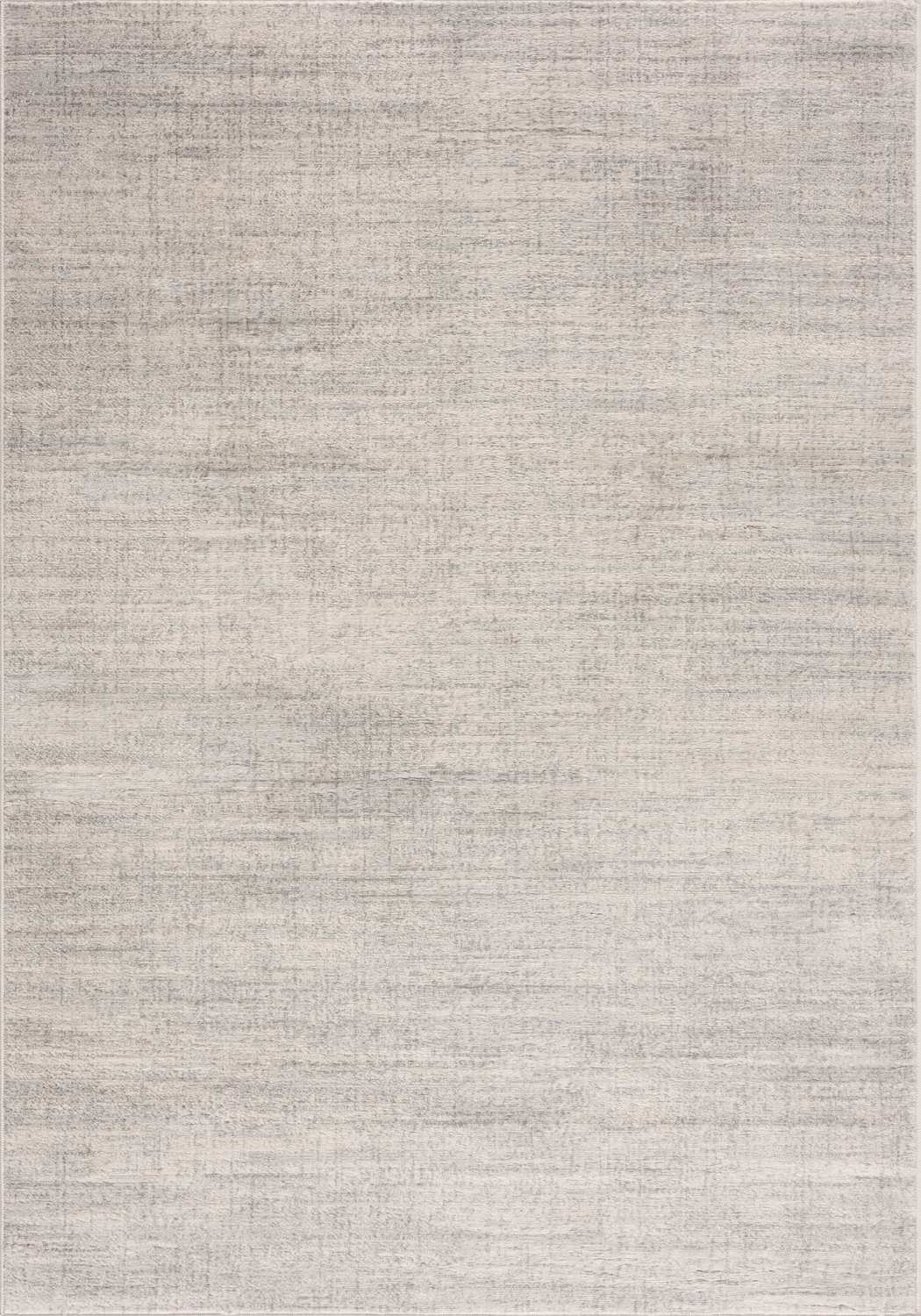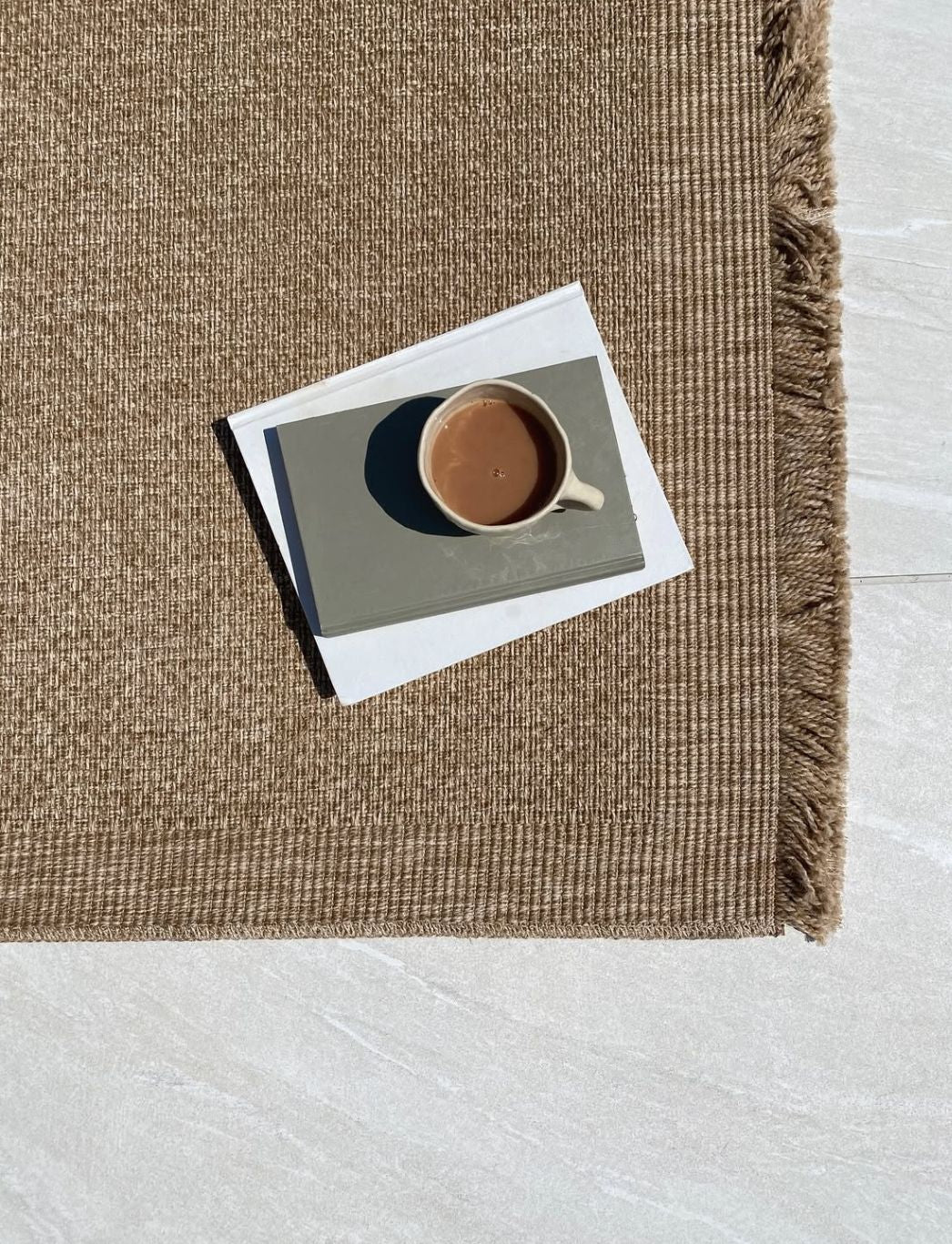How to Clean Pillows
Adding vibrant throw pillows can instantly liven up a space, but they tend to accumulate dust and grime over time. Cleaning them properly hinges on the pillow's material, structure, and specific washing instructions. Checking the care tags is crucial, but here are the typical methods for cleaning throw pillows.

How Often You Should Wash
The frequency of washing decorative pillows depends on how often you are using. If they adorn a frequently-used couch or bed, a monthly cleaning is recommended. For pillows used less often, seasonal cleaning would be enough.
Equipments & Tools
- Washing machine
- Soft sponge
Cleaning Products
- Mild laundry detergent
- Mild dishwashing liquid
- Dry cleaning solution
- Enzyme-based stain remove
- For tough stains, remove the pillow cover and treat it with an enzyme-based stain remover before washing.
- Take off the cover from the pillow and put it in the washing machine. Opt for mild detergent and cold water, using the gentle cycle.
- After the wash cycle, take out the cover and hang it to dry. Avoid using the dryer as the heat might shrink or distort the fabric.
- While the cover dries, place the pillow insert in the dryer on the air-only cycle. Add a few dryer balls to help fluff the pillow and remove accumulated dust.
How to Hand-Wash
- Pretreat stains with an enzyme-based remover or detergent and let it sit for 10 minutes.
- Fill a sink with cold water and a teaspoon of liquid detergent. Soak the cover for five minutes, swish, then rinse until no suds remain. Air dry.
- Hand wash the insert with a few drops of detergent, rinse thoroughly, squeeze excess water using towels, and air dry on a rack. Remember to fluff it during drying.

Tips For the Spot Clean
Spot cleaning is a gentle way to care for throw pillows labeled "spot clean only." Here’s a step-by-step guide:
- Mix mild soap with warm water and dampen a sponge or cloth.
- Gently rub the stained area from the outer edges toward the center to prevent spreading.
- Use a clean area of the sponge as the stain transfers.
- Allow the dampened area to air dry.
- If needed, consider spot cleaning with a dry cleaning solvent for more stubborn stains.
How to Clean Pillow Stains: Effective Spot Treatment Techniques
Tackle unsightly pillow stains with these effective methods. Start by identifying the stain type to choose the appropriate cleaning solution. For sweat and oil stains, create a paste using baking soda and water. Apply the paste to the stain, let it sit for 30 minutes, then brush off and vacuum. For food or beverage stains, use a mixture of dish soap and warm water. Gently dab the stain with a clean cloth, working from the outside in. For tougher stains, consider using a specialised fabric stain remover. Always test any cleaning solution on a small, inconspicuous area first to ensure it doesn't damage the fabric.
How to Clean Pillow Cases: Maintaining Fresh and Hygienic Bedding
Keep your pillow cases clean and fresh with these simple steps. Wash pillow cases weekly to maintain hygiene. Use warm water and a mild detergent for regular washing. For stubborn stains, pre-treat with a mixture of baking soda and water. To prevent yellowing, add a cup of white vinegar to the rinse cycle. For delicate fabrics, opt for a gentle cycle or hand wash. Always check the care label for specific instructions. Air dry when possible to maintain fabric quality and reduce energy consumption. Iron on appropriate heat setting if desired for a crisp, clean look.
How to Clean Pillow Without Washing: Quick Refresh Techniques
Freshen up your pillows between washes with these simple methods. Start by vacuuming both sides of the pillow to remove dust and allergens. Sprinkle baking soda over the pillow and let it sit for several hours to absorb odours. Vacuum thoroughly afterwards. For spot cleaning, use a mixture of mild soap and warm water. Dab gently with a clean cloth, being careful not to saturate the pillow. Air out your pillows in direct sunlight for a few hours to naturally disinfect and deodorise. Consider using a fabric freshener spray designed for bedding for a quick scent boost.

How to Clean Pillow in Washing Machine: Thorough Cleaning for Most Pillows
Effectively clean your pillows in the washing machine with these steps. First, check the care label to ensure machine washing is safe. Remove pillowcases and protectors. Use warm water and a mild detergent. Add a cup of white vinegar to the rinse cycle to help remove soap residue. Wash two pillows at a time to balance the load. Use the gentle cycle to prevent damage. For down or feather pillows, use a specialised detergent. Run an extra rinse cycle to ensure all soap is removed. Dry thoroughly on low heat with dryer balls to prevent clumping. Always ensure pillows are completely dry before use.
How to Clean Pillow Without Washing Machine: Hand-Washing Techniques
Clean your pillows effectively without a washing machine using these methods. Fill a large sink or bathtub with warm water and add a small amount of mild detergent. Submerge the pillow and gently squeeze to allow the soapy water to penetrate. For stubborn stains, use a soft-bristled brush to gently scrub. Rinse thoroughly with clean water until no soap remains. Press out excess water without wringing or twisting. Dry flat in direct sunlight, fluffing and turning occasionally for even drying. For non-washable pillows, spot clean with a damp cloth and mild soap solution, then air dry completely.
How to Clean Pillow Cases Yellow: Restoring Brightness to Dingy Fabrics
Revive yellowed pillow cases with these effective cleaning methods. Start by soaking the cases in a solution of hot water and oxygen-based bleach for several hours. For stubborn yellowing, create a paste with baking soda and water, apply to the stained areas, and let sit before washing. Add a cup of white vinegar to the rinse cycle to help remove soap residue and brighten fabrics. For white pillow cases, use a bluing agent in the wash to counteract yellow tones. Dry in direct sunlight when possible, as UV rays can help naturally bleach and brighten fabrics.
How to Clean Pillow Top Mattress: Maintaining a Fresh Sleeping Surface
Keep your pillow top mattress clean and hygienic with these techniques. Start by vacuuming the entire surface thoroughly to remove dust and allergens. For spot cleaning, mix a solution of mild detergent and warm water. Dab the stained area gently with a clean cloth, being careful not to saturate the mattress. For odour removal, sprinkle baking soda over the surface, let it sit for several hours, then vacuum thoroughly. Use a fabric freshener spray designed for mattresses for a quick refresh. Consider using a mattress protector to prevent future stains and extend the life of your pillow top mattress.
How to Clean Pillow Pets: Caring for Plush Companions
Keep your pillow pets clean and cuddly with these gentle cleaning methods. Check the care label first, as some may be machine washable. For surface cleaning, use a damp cloth with a mild soap solution to spot clean. For deeper cleaning, use a foam upholstery cleaner, working it gently into the fabric with a soft brush. Rinse by wiping with a clean, damp cloth. For machine-washable pillow pets, use a gentle cycle with cold water and mild detergent. Place in a mesh laundry bag to protect features. Air dry or tumble dry on low heat, reshaping as needed. Brush gently when dry to restore the plush texture.
How to Clean Pillow Covers: Maintaining Decorative and Functional Covers
Keep your pillow covers looking fresh with these cleaning tips. Always check the care label for specific instructions. For machine-washable covers, use a gentle cycle with cold water and mild detergent. Turn covers inside out before washing to protect any decorative elements. For delicate or non-washable covers, spot clean with a mixture of mild soap and water. Dab gently with a clean cloth, working from the outside of the stain inward. For stubborn stains, use a fabric stain remover designed for the specific fabric type. Air dry when possible, or tumble dry on low heat. Iron on appropriate setting if needed for a crisp look.

How to Clean Pillow Inserts: Refreshing the Core of Your Pillows
Maintain the freshness of your pillow inserts with these cleaning methods. For machine-washable inserts, use a gentle cycle with warm water and mild detergent. Add tennis balls or dryer balls to the dryer to help maintain loft. For foam inserts, spot clean with a mixture of mild soap and water, being careful not to saturate the foam. Allow to air dry completely before use. For down or feather inserts, use a specialised down detergent and wash on a gentle cycle. Dry thoroughly on low heat with dryer balls. For non-washable inserts, air out in sunlight periodically and use a fabric freshener spray designed for bedding.
How to Clean Pillows with Baking Soda: Natural Deodorising and Freshening
Refresh your pillows naturally using baking soda with these simple steps. Remove pillowcases and sprinkle baking soda liberally over both sides of the pillow. Let it sit for several hours or overnight to absorb odours and moisture. Vacuum thoroughly using an upholstery attachment. For deeper cleaning, create a paste with baking soda and water to spot clean stains. Gently work the paste into the fabric with a soft brush, then wipe clean with a damp cloth. For machine-washable pillows, add a cup of baking soda to the wash cycle along with your regular detergent for extra freshening power.
How to Clean Pillows in Bathtub: Deep Cleaning for Large or Delicate Pillows
Clean your pillows effectively in the bathtub with these steps. Fill the tub with warm water and add a small amount of mild detergent. Submerge the pillows and gently squeeze to allow the soapy water to penetrate. For stubborn stains, use a soft-bristled brush to gently scrub. Drain the soapy water and rinse thoroughly with clean water until no soap remains. Press out excess water without wringing or twisting. For faster drying, use a clean, dry towel to absorb moisture. Dry flat or hang in direct sunlight, fluffing and turning occasionally for even drying. Ensure pillows are completely dry before use.
How to Clean Pillows UK: British Methods for Pillow Maintenance
Keep your pillows fresh and hygienic with these UK-friendly cleaning methods. For machine-washable pillows, use a 40°C gentle cycle with a mild detergent. Add a cup of white vinegar to the rinse cycle for extra freshening. Dry thoroughly in a tumble dryer with dryer balls or tennis balls to prevent clumping. For non-washable pillows, air regularly in British sunshine when possible. Use a fabric freshener spray designed for bedding between washes. For spot cleaning, mix a solution of washing-up liquid and warm water. Dab gently with a clean cloth, being careful not to saturate the pillow. Always check care labels and follow manufacturer's instructions.

How to Clean Pillows in Washing Machine: Effective Machine Washing Techniques
Clean your pillows efficiently in the washing machine with these steps. Always check the care label first to ensure machine washing is safe. Remove pillowcases and protectors. Use warm water and a mild detergent. Add a cup of white vinegar to the rinse cycle to help remove soap residue and freshen. Wash two pillows at a time to balance the load. Use the gentle cycle to prevent damage. For down or feather pillows, use a specialised detergent. Run an extra rinse cycle to ensure all soap is removed. Dry thoroughly on low heat with dryer balls to prevent clumping. Ensure pillows are completely dry before use to prevent mould growth.
How to Clean Pillows After Lice: Thorough Decontamination Methods
Effectively clean pillows after a lice infestation with these steps. First, seal the pillow in a plastic bag for two weeks to ensure any remaining lice or eggs are dead. For washable pillows, use hot water (at least 50°C) in the washing machine with regular detergent. Dry on high heat for at least 20 minutes. For non-washable pillows, place in a dryer on high heat for at least 20 minutes. Alternatively, seal in a plastic bag and place in the freezer for 24 hours. Vacuum the pillow thoroughly after treatment. Consider using a lice-killing spray designed for bedding as an extra precaution. Always consult a healthcare professional for proper lice treatment.
How to Clean Pillows at Home: DIY Methods for Fresh Bedding
Refresh your pillows at home with these simple cleaning techniques. For a quick freshen-up, sprinkle baking soda over the pillow, let sit for several hours, then vacuum thoroughly. Spot clean stains with a mixture of mild soap and warm water, dabbing gently with a clean cloth. For machine-washable pillows, use a gentle cycle with warm water and mild detergent. Add tennis balls to the dryer to help maintain loft. For non-washable pillows, air out in sunlight periodically to naturally disinfect and deodorise. Use a fabric freshener spray designed for bedding between washes. Always ensure pillows are completely dry before use.

How to Clean Pillows by Hand: Gentle Washing Techniques
Clean your pillows effectively by hand with these methods. Fill a large sink or bathtub with warm water and add a small amount of mild detergent. Submerge the pillow and gently squeeze to allow the soapy water to penetrate. For stubborn stains, use a soft-bristled brush to gently scrub. Rinse thoroughly with clean water until no soap remains. Press out excess water without wringing or twisting. Dry flat in direct sunlight, fluffing and turning occasionally for even drying. For non-washable pillows, spot clean with a damp cloth and mild soap solution, then air dry completely. Always check care labels before hand washing.
How to Clean Pillows with Vinegar: Natural Disinfecting and Deodorising
Freshen and disinfect your pillows naturally using vinegar with these steps. For machine-washable pillows, add one cup of white vinegar to the rinse cycle along with your regular detergent. This helps remove soap residue and neutralise odours. For spot cleaning, mix equal parts white vinegar and water in a spray bottle. Lightly mist the pillow and blot with a clean cloth. For deeper cleaning, soak the pillow in a solution of warm water and one cup of vinegar for 30 minutes before washing. Always rinse thoroughly and dry completely. The vinegar smell will dissipate as the pillow dries, leaving it fresh and clean.
How to Clean Pillows After Scabies: Thorough Sanitisation Methods
Effectively clean pillows after a scabies infestation with these steps. First, seal the pillow in a plastic bag for at least 72 hours to ensure any remaining mites are dead. For washable pillows, use hot water (at least 50°C) in the washing machine with regular detergent. Dry on high heat for at least 20 minutes. For non-washable pillows, place in a dryer on high heat for at least 20 minutes. Alternatively, seal in a plastic bag and place in the freezer for 24 hours. Vacuum the pillow thoroughly after treatment. Consider using a scabies-killing spray designed for bedding as an extra precaution. Always consult a healthcare professional for proper scabies treatment.
How to Clean Pillows Without Washing Machine: Manual Cleaning Techniques
Effectively clean your pillows without a washing machine using these methods. For spot cleaning, mix a solution of mild detergent and warm water. Dab the stained area gently with a clean cloth, being careful not to saturate the pillow. For a deeper clean, fill a large sink or bathtub with warm water and mild detergent. Submerge the pillow and gently squeeze to allow the soapy water to penetrate. Rinse thoroughly with clean water. Press out excess water without wringing or twisting. Dry flat in direct sunlight, fluffing and turning occasionally for even drying. For non-washable pillows, use a fabric freshener spray designed for bedding and air out in sunlight periodically.
What is the best way to clean pillows?
The best way to clean pillows is to follow the care label instructions. Generally, most pillows can be machine washed on a gentle cycle with warm water and mild detergent. Air dry thoroughly or use low heat in the dryer with dryer balls.
Is it safe to wash pillows in the washing machine?
Most pillows are safe to wash in the machine. Use a gentle cycle with warm water and mild detergent. Wash two pillows at a time to balance the load. Always check the care label for specific instructions.
How to clean a yellow pillow?
To clean yellow pillows, mix 1 cup of laundry detergent, 1 cup of powdered dishwasher detergent, 1 cup of bleach, and 1 cup of borax in hot water. Soak pillows for 30 minutes, then wash on a hot cycle and dry thoroughly.
How to disinfect pillows without washing?
Disinfect pillows without washing by exposing them to sunlight for a few hours, which naturally kills bacteria. Alternatively, use a fabric spray with disinfectant properties or sprinkle baking soda, let sit, and vacuum thoroughly.
Why does your pillow turn yellow?
Pillows turn yellow due to sweat and body oil absorption over time. Other factors include moisture from wet hair, drooling during sleep, and environmental factors like humidity and dust.
Is it OK to wash my pillow?
Yes, it's generally OK to wash pillows. Most pillows benefit from regular washing to remove allergens, dust mites, and body oils. Always check the care label for specific instructions.
Are pillows worth washing?
Absolutely! Washing pillows is worth it as it extends their lifespan, improves hygiene, and enhances sleep quality. Clean pillows reduce allergens and provide a fresher sleeping environment.
Which pillows cannot be washed?
Pillows that typically cannot be washed include those filled with kapok, buckwheat, or specialty foam. Some memory foam pillows also shouldn't be washed. Always check the care label for specific instructions.
How do you dry pillows after washing?
Dry pillows by air drying in a well-ventilated area or using a dryer on low heat. Add dryer balls or clean tennis balls to fluff the pillows. Ensure pillows are completely dry to prevent mold growth.
Does baking soda clean pillows?
Baking soda can help clean pillows by absorbing odors and freshening the fabric. Sprinkle baking soda on the pillow, let it sit for several hours, then vacuum thoroughly. It's an effective between-wash freshener.
Does vinegar disinfect pillows?
Vinegar can help disinfect pillows due to its antimicrobial properties. Add 1 cup of white vinegar to the rinse cycle when washing pillows to kill bacteria and remove odors.
Should pillows be washed or dry cleaned?
Most pillows can be washed at home, but some specialty pillows may require dry cleaning. Check the care label for specific instructions. If in doubt, professional dry cleaning is a safe option for delicate pillows.
Can I put pillows in the washing machine?
Most pillows can be put in the washing machine. Use a gentle cycle with warm water and mild detergent. Wash two pillows at a time to balance the load and use an extra rinse cycle if possible.
How to get smell out of pillows?
Remove smells from pillows by washing with vinegar in the rinse cycle, sprinkling with baking soda before vacuuming, or airing out in sunlight. For persistent odors, consider using an enzymatic cleaner designed for fabrics.
How often should I replace pillows?
Replace pillows every 1-2 years for optimal support and hygiene. Memory foam pillows may last longer, up to 3 years. If your pillow is lumpy, smelly, or causing discomfort, it's time for a replacement.
How to deep clean pillows?
Deep clean pillows by machine washing on a hot cycle with 1 cup of bleach (for white pillows) or 1 cup of vinegar (for colored pillows). Use an extra rinse cycle and dry thoroughly on low heat with dryer balls.
How to wash a pillow by hand?
To hand wash a pillow, fill a tub with warm water and mild detergent. Submerge the pillow, gently squeezing to clean. Rinse thoroughly with clean water until no soap remains. Squeeze out excess water and air dry completely.
How do you disinfect pillows without a washing machine?
Disinfect pillows without a washing machine by exposing to sunlight, using a fabric disinfectant spray, or steam cleaning. For spot cleaning, use a mixture of water and vinegar or a mild soap solution.
Is it worth washing pillows?
Washing pillows is definitely worth it. It removes allergens, kills dust mites, eliminates odors, and extends the pillow's lifespan. Clean pillows contribute to better sleep quality and overall hygiene.
How often do you wash your pillow?
Wash pillows every 3-6 months for optimal hygiene. If you sweat a lot or have allergies, consider washing them more frequently. Always use pillow protectors and wash pillowcases weekly.
Is it OK to wash down pillows?
Yes, it's OK to wash down pillows. Use a gentle cycle with warm water and mild detergent. Dry thoroughly on low heat with dryer balls to prevent clumping. Some down pillows may require professional cleaning.
How do I get my pillows white again?
Whiten pillows by washing them with a mixture of 1 cup bleach, 1 cup powdered laundry detergent, and 1 cup powdered dishwasher detergent. Use hot water and an extra rinse cycle. Dry thoroughly in sunlight if possible.
Does vinegar clean pillows?
Vinegar is effective for cleaning pillows. It removes odors, kills bacteria, and helps whiten. Add 1 cup of white vinegar to the rinse cycle when washing pillows for a natural, chemical-free clean.
Can I air dry pillows?
Yes, you can air dry pillows. Place them in a well-ventilated area or outdoors on a sunny, breezy day. Fluff and rotate pillows periodically to ensure even drying and prevent clumping.
Should you throw pillows in the washing machine?
Most pillows can be safely washed in the machine. Use a gentle cycle with warm water and mild detergent. Wash two pillows at a time for balance and use an extra rinse cycle if possible.
How do I dry my pillow after washing?
Dry pillows by air drying in a well-ventilated area or using a dryer on low heat. Add dryer balls or clean tennis balls to fluff the pillows. Ensure pillows are completely dry to prevent mold growth.
Can you steam clean pillows?
Steam cleaning can be effective for pillows, especially for spot cleaning and disinfecting. Use a handheld steamer and go over the pillow surface, paying extra attention to stains. Allow the pillow to dry completely afterward.
Can pillows be dry cleaned?
Some pillows, especially those with delicate fillings or special care instructions, can be dry cleaned. Always check the care label first. Dry cleaning is a good option for pillows that can't be machine washed.
Can I wash 100% polyester pillows?
Yes, 100% polyester pillows can typically be machine washed. Use a gentle cycle with warm water and mild detergent. Dry on low heat with dryer balls, or air dry completely before use.
How do you get stains out of pillows in the washing machine?
To remove stains in the washing machine, pre-treat with a stain remover or a paste of baking soda and water. Wash in hot water with your regular detergent plus 1 cup of white vinegar. Use an extra rinse cycle if possible
Is it safe to put pillows in the washing machine?
Most pillows can be safely washed in a machine. Use a gentle cycle with warm water and mild detergent. Always check the care label first, as some pillows may require special care. Wash pillows in pairs to balance the load and ensure thorough cleaning.
How to clean your yellow pillows?
To clean yellow pillows, create a mixture of hot water, laundry detergent, and 1 cup of bleach for white pillows or 1 cup of white vinegar for colored ones. Soak pillows in this solution for an hour, then wash in the machine. Sun-dry them to naturally whiten and freshen.
How to sanitize pillows without washing?
Sanitize pillows without washing by exposing them to direct sunlight for a few hours, which naturally kills bacteria. Alternatively, use a fabric sanitizer spray or sprinkle baking soda on the pillow, let it sit for an hour, then vacuum thoroughly. For deeper cleaning, use a handheld steamer.
How to clean a smelly memory foam pillow?
To freshen a smelly memory foam pillow, sprinkle baking soda over the surface and let it sit for several hours to absorb odors. Vacuum thoroughly. For deeper cleaning, spot clean with a mixture of mild detergent and water. Always air dry completely before use to prevent mold growth.
Is it OK to machine wash down pillows?
Yes, it's generally safe to machine wash down pillows. Use a gentle cycle with warm water and a mild detergent. Add a few dryer balls or clean tennis balls to the dryer to prevent clumping. Dry thoroughly on low heat to ensure all moisture is removed and maintain the pillow's loft.
Why do some peoples pillows turn yellow?
Pillows turn yellow due to sweat and body oil absorption over time. Factors like not using pillowcases, infrequent washing, and high humidity can accelerate yellowing. Saliva, skin cells, and hair products also contribute to discoloration. Regular washing and using pillow protectors can help prevent yellowing.
Why do pillows go flat?
Pillows go flat due to regular use compressing the filling material. Factors like body weight, sleeping position, and pillow quality affect flattening rate. Natural materials like down tend to compress more quickly than synthetic fills. Fluffing pillows daily and using pillow protectors can help maintain their shape longer.
How often should pillows be replaced?
Generally, pillows should be replaced every 1-2 years for optimal support and hygiene. Memory foam pillows may last up to 3 years, while down pillows can last up to 5 years with proper care. Signs it's time to replace include persistent lumps, yellowing, and waking up with neck pain.
How to deep clean a pillow?
For a deep clean, wash pillows in hot water with a heavy-duty detergent. Add a cup of white vinegar or hydrogen peroxide for extra freshening. Use an extra rinse cycle to remove all soap residue. Dry thoroughly on low heat with dryer balls to prevent clumping. Sun-dry for additional sanitization.
What happens if I don't wash my pillow?
Unwashed pillows accumulate dust mites, dead skin cells, and bacteria, which can lead to allergies and skin irritations. They also absorb sweat and oils, causing unpleasant odors and yellowing. Over time, this buildup can shorten the pillow's lifespan and compromise its supportive properties.
How to get pillows white again?
To whiten pillows, soak them in a solution of hot water, 1 cup of laundry detergent, 1 cup of powdered dishwasher detergent, and 1 cup of bleach for white pillows. For colored pillows, replace bleach with white vinegar. Soak for an hour, then wash and dry in direct sunlight for natural bleaching.
How often should I wash pillows?
Wash pillows every 3-6 months to maintain hygiene and extend their lifespan. Pillowcases should be washed weekly. If you have allergies or pets, consider washing pillows more frequently. Always follow the care label instructions and ensure pillows are completely dry before use.
What can I spray on my pillow to clean it?
Create a DIY pillow spray by mixing equal parts water and white vinegar with a few drops of essential oil for fragrance. For a commercial option, use a fabric sanitizer spray. These sprays help freshen and lightly sanitize between washes. Always test on a small area first to ensure the fabric doesn't discolor.
Related Blog Posts










Leave a comment